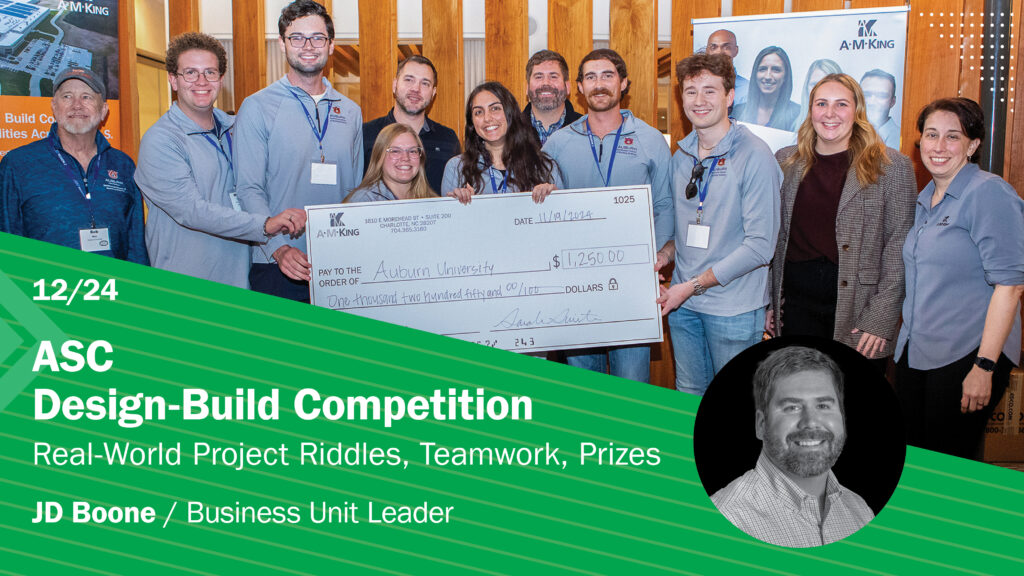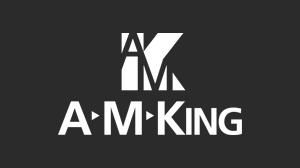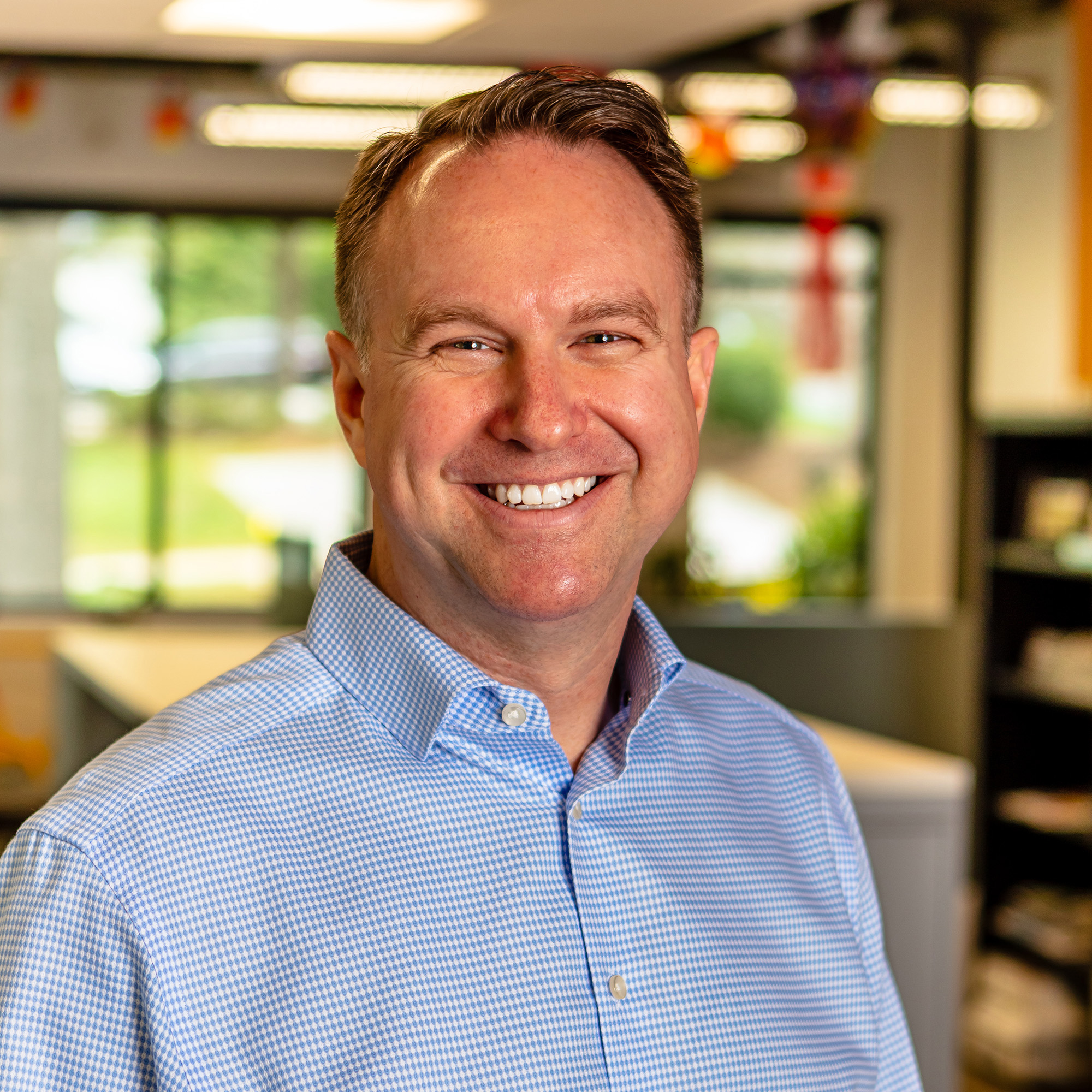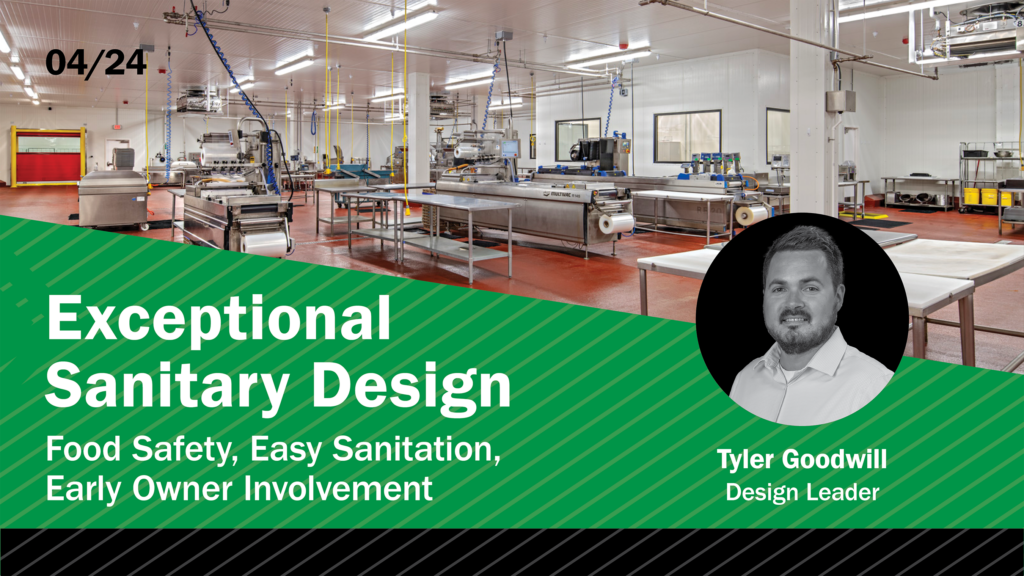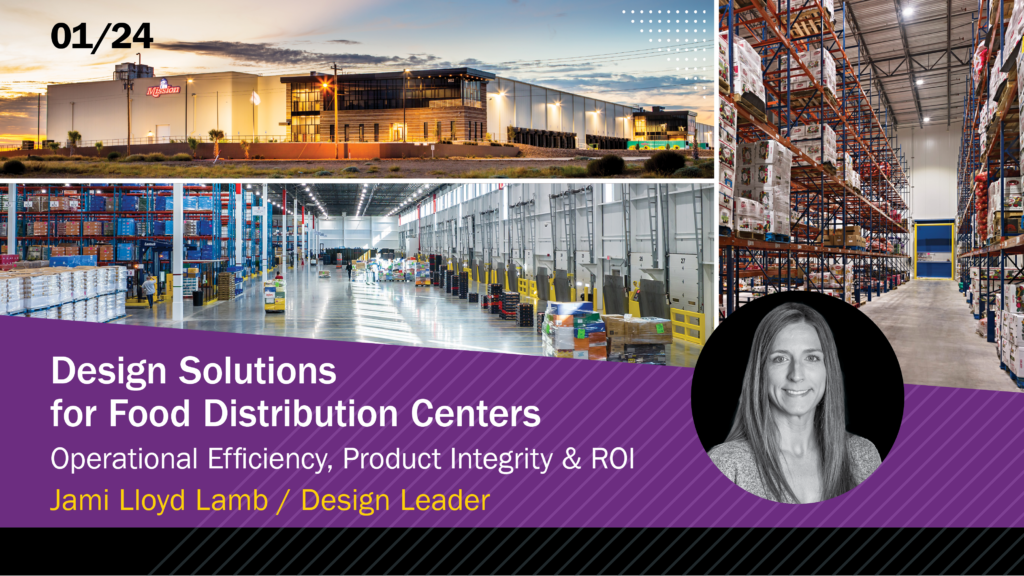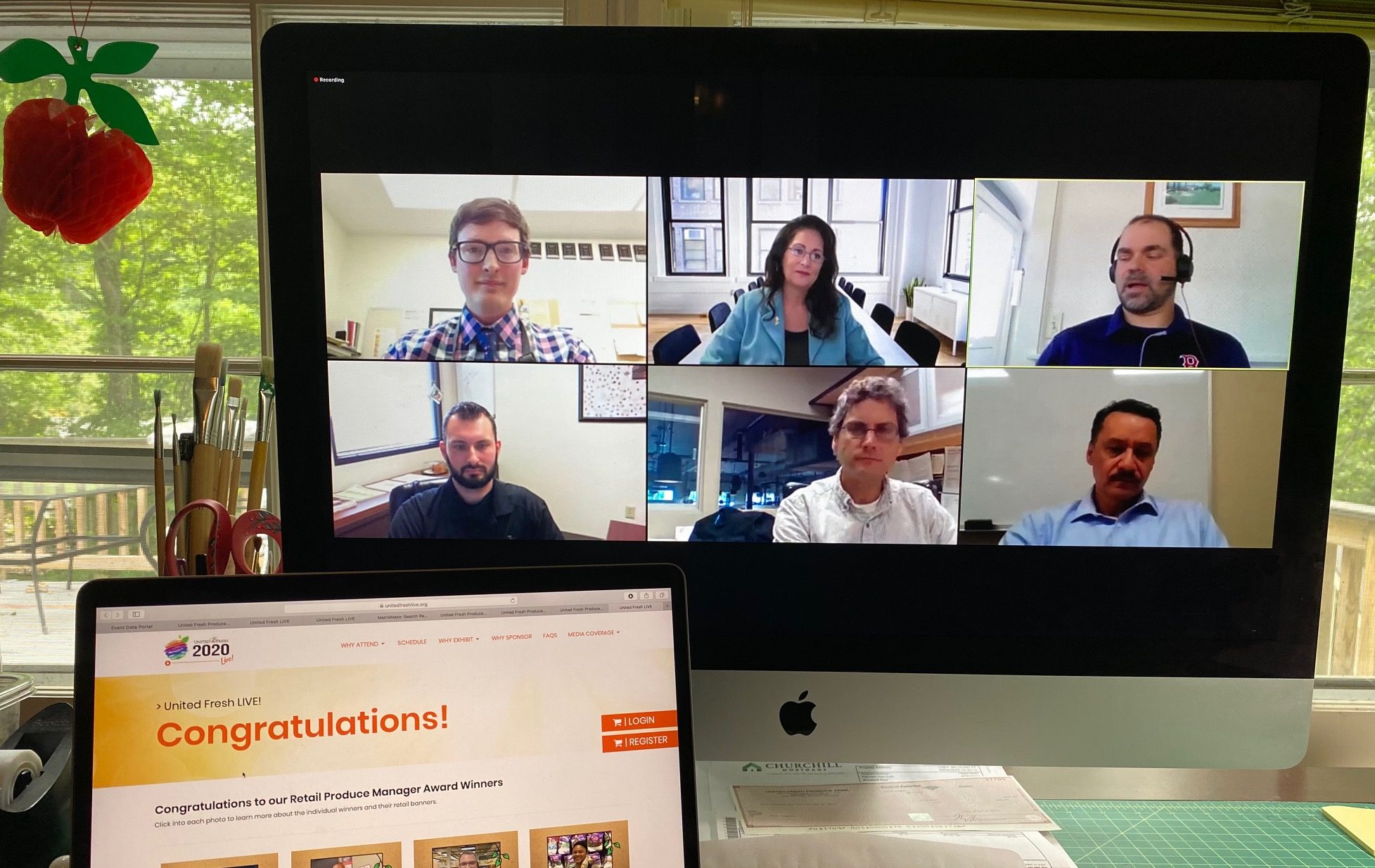
A Brave New World: Business Development, Client Communication and Food Industry Education
The current global environment brings to mind the famous and ever relevant Bob Dylan song “The Times They Are a-Changin.’” While different decades and movements have always produced shifts in business, I can’t remember another time that has had such a significant impact on the worldwide economy, our work and our personal lives.
The Good Old Days
As the Director of Business Development for A M King, my job involves traveling, networking and interacting with various people throughout the U.S. involved in the food processing and food distribution industries. I attend conferences, tradeshows and education sessions. I meet with clients, equipment vendors and economic and governmental organizations. I routinely tour production plants with prospective customers. I walk through busy airports, fly on packed airplanes, stay in sold-out hotels, shake hands and talk with people face-to-face.
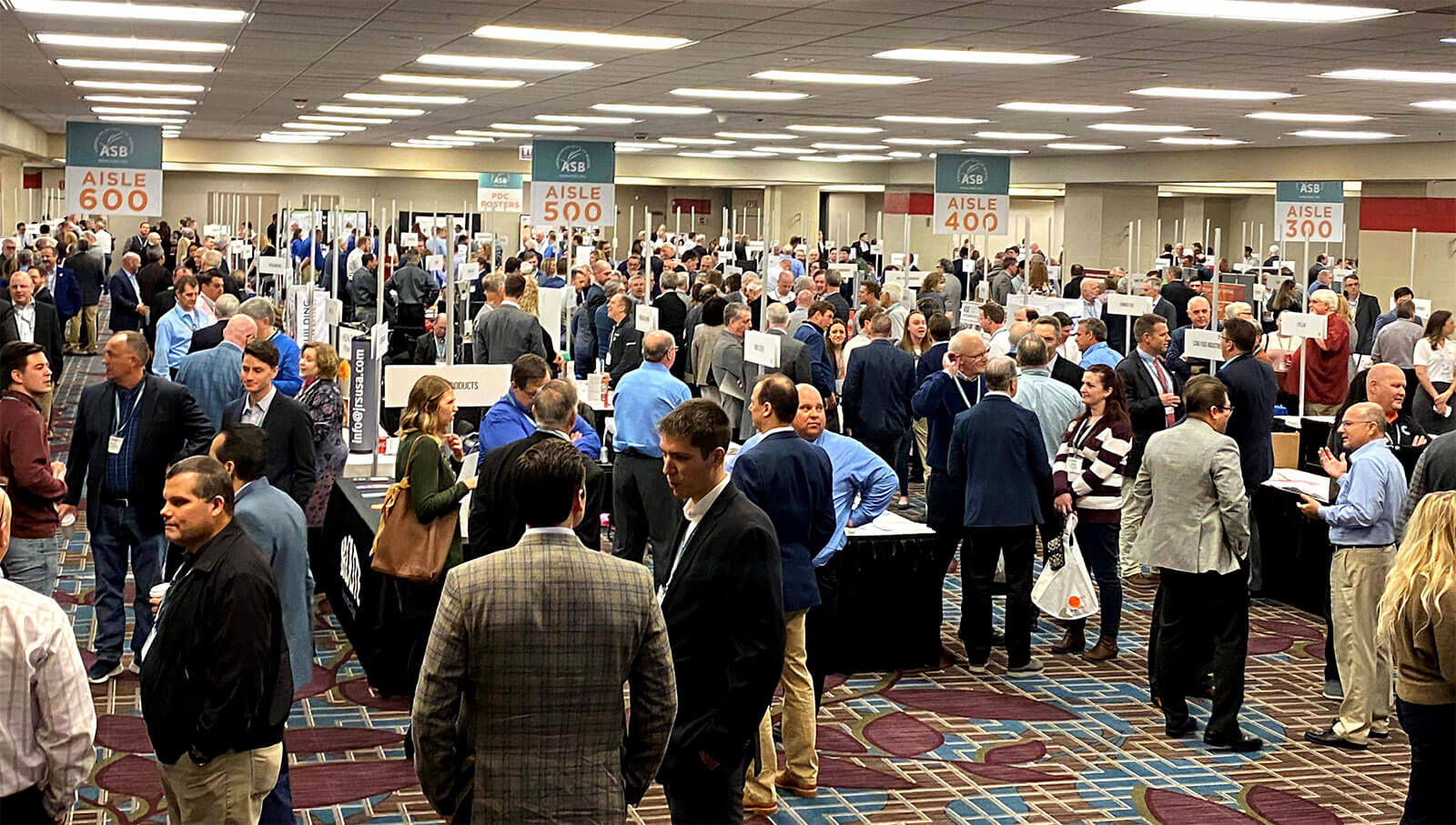
On March 1 of this year, I embarked on a week-long trip that began when I flew from Charlotte to Chicago to attend the American Society of Baking (ASB)’s BakingTECH2020 conference. After a whirlwind of sessions, dinners and group activities there, I traveled to Los Angeles to have lunch with folks at Mission Produce, a client that I was previously introduced to at another tradeshow. A M King is designing and building a 262,000 sf ripening and processing facility for the avocado giant in Laredo, Texas. Next, I drove down the California coast to San Diego to attend the Food Processing Suppliers Association (FPSA) conference, where I listened to a keynote from Jim Donald, former CEO of Starbucks and current Chairman of Albertsons Companies. Finally, eight days later, I flew back to Charlotte.
The New Frontier
These type of cross-country trips with multiple modes of travel and networking among hundreds of colleagues came to a screeching halt four months ago amid concerns around the spread of COVID-19. Tradeshows and conferences as they were have been postponed or cancelled entirely. Even if these types of events resume in a few months, will we be comfortable attending? How can the food industry continue to educate its members? How can we best communicate with existing owners and prospective clients? What is the best way to handle business development during the pandemic?
These are the challenges that we are facing, and we are searching for ways to maneuver through it. Rather than just thinking about how to survive, I have been considering how this pandemic might actually have a positive effect on the way we do business in the future.
It has started with how conferences and tradeshows have had to adapt with development of socially distanced meetings. Last month, I participated in many of the Bakery Equipment Manufacturers & Allieds (BEMA) Virtual Conference sessions. Where we once would have had joined together for client panels, education sessions, networking events and social interactions, we now participated in online webinars, client lead panel discussions and even a women’s bakery fund raising telethon. All these sessions were recorded to allow members to watch afterward if they were not able to join during the scheduled timeframe. Kerwin Brown, BEMA’s President told me, “These efforts have allowed us to reach a broader group of participants who may have been limited by cost or geography in the past.”
I also attended the United Fresh Live! virtual tradeshow, which was the first to host a completely simulated hall with live vendors on standby available to talk to participants about their products and services. They also held webinars, food industry education sessions and client panels to hear and interact with other industry leaders. One equipment vendor I spoke with noted that more than 1,000 visitors came through their digital booth, which generated many more leads than a physical booth presence typically would have. The way people all over the world interacted with these vendors and clients without leaving their homes was amazing!
John Toner, United Fresh’s Vice President of Convention & Industry Collaboration, says “one of the largest advantages was the online education sessions and the value that created for both members and non-members who might have never been able to attend the tradeshow.” He estimated that this saved roughly 37,000 hours of air travel that would have normally been spent to attend the show.
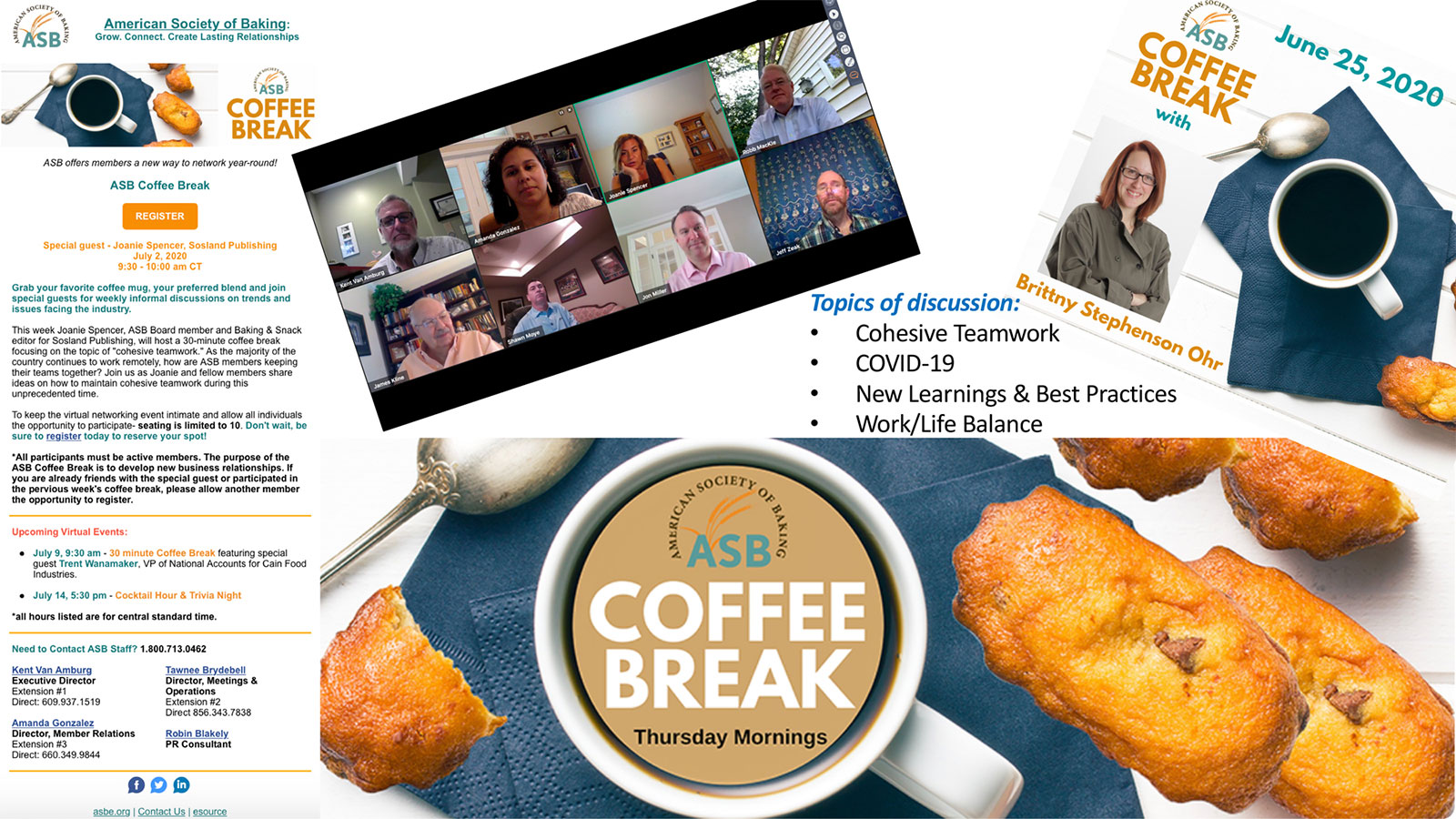
New online meetings that I take part in are the American Society of Baking (ASB) weekly coffee break sessions. These carefully planned sessions are limited to ten available spots, last only thirty minutes and feature one highlighted bakery or equipment vendor to meet and discuss a targeted set of topic questions with. “These micro-video meetings give members a connection to start relationships with new contacts, while also reinforcing existing connections- all while being distanced,” says Kent Van Amburg, ASB’s Executive Director.
This brave new world has forced me to alter my strategy for meeting and interacting with our food processing and food distribution clients for the first time. Where in the past I would typically jump in my car or on a plane to meet with them, now I must be more creative about how to make first connections, set up multiple employee video calls and even present project proposals online. Our marketing department has done a phenomenal job developing new tools and online processes that allow me to present our capabilities and services to potential clients during these online meetings.
The Future of Business Development
So, what does this mean for the future of sales and networking? What will happen to the millions of salespeople out there whose normal routines have been disrupted? How will business development during the pandemic thrive? I think now as everyone has started to process these major changes and huge disruptions in their lives, they are starting to see the advantages to some of these new formats and techniques that might be weaved into future interactions.
With that said, at some point in the future, we will begin to start meeting face-to-face again, attending conferences and tradeshows, touring facilities and shaking hands. And this is important because in-person interactions build strong relationships with clients. That will never change. But I believe there will be many small changes that will morph into a hybrid version of what was and what is, and that will become the new normal. The advantages that I see include the ability to:
- Provide more education to many more people in the food industry.
- Make face-to-face video introductions to food companies before having to travel to their plants in person.
- Contact equipment technicians in the field for on-demand assistance.
- Participate in conference and tradeshows that allow for both in-person networking and remote streamed video to include more attendees in the experience.
- Stay connected and engaged with industry colleagues on a more regular basis.
As time goes on, I think we will see food industry associations develop even more innovative and interesting ideas for networking and communication so that the greater food chain in this country is served well. Yes, The Times They Are a-Changin’, and I think it will make for a vastly better business world as we all make our way through this together.


